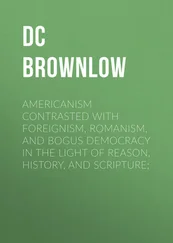The fact that an entire race of people is ‘defined’ or stereotyped in such a manner is yet another example of the way society at the time thought of the Jewish people; as their own race that required a separate definition.
The Dearborn Independent Years
It was in the year 1918 that Henry Ford had Ernest G. Liebold, his private secretary, purchase The Dearborn Independent , a local weekly newspaper based in Dearborn, Michigan. Ford invested a whopping five million dollars in the newspaper, which allowed him to project his own voice and views into the populace. The original editor of the paper refused to print Ford’s anti-Semitic essays, so he fired him and hired a new editor who would be happy to comply. In the paper, Ford would publish articles about a vast and secret worldwide conspiracy of Jewish control and manipulation. During its peak the circulation of the newspaper was a staggering 700,000 readers. It was sold by subscription and more than 7,000 Ford dealerships nationwide were required to carry it, thus ensuring that Ford’s right-wing mouthpiece had a wide reach. It was far from the only anti-Semitic paper, but this one had a circulation across the country.
The Dearborn Independent would publish its very first anti-Semitic article titled: Anti-Semitism – Will It Appear in the United States? The article, which does not list any specific author, addresses what they call the ‘Jewish Question’ in the United States. The article proceeds to define what they consider to be the four types of Jews and complains that anyone who questions the very presence and intentions of Jews in America (the Jewish Question) is considered to be hateful and anti-Semitic:
It is not recognition of the Jewish Question. If it were, then it could be set down that the bulk of the American people arc destined to become anti-Semites, for they are beginning to recognise the existence of a Jewish Question and will steadily do so in increasing numbers as the Question is forced upon them from the various practical angles of their lives. The Question is here. We may be honestly blind to it. We may be timidly silent about it. We may even make dishonest denial of it. But it is here. In time all will have to recognise it. In time the polite ‘hush,hush’ of over-sensitive or intimidated circles will not be powerful enough to suppress it. But to recognise it will not mean that we have gone over to a campaign of hatred and enmity against the Jews. It will only mean that a stream of tendency which has been flowing through our civilisation has at last accumulated bulk and power enough to challenge attention, to call for some decision with regard to it, to call for the adoption of a policy which will not repeat the mistakes of the past and yet will forestall any possible social menace of the future.
A selection of these anti-Semitic articles and editorials would later be collected into book format in 1920 under the title The International Jew – The World’s Foremost Problem . Ford would go on to distribute half a million copies of his anti-Semitic opus through his car dealerships and nationwide subscribers to the Dearborn Independent . The International Jew was a book that Adolf Hitler himself would own and would become a bestseller in Nazi-era Germany. The book would also spawn a second volume in April of 1921, Jewish Activities in the United States: Volume II of The International Jew .
Ford’s anti-Semitic book may have been a smash-hit in Nazi Germany, but there was certainly a vocal resistance to it back home in America. The International Jew , along with other similar publications and pamphlets, inspired the Federal Council of Churches of Christ in America to publish an anti-propaganda statement titled The Peril of Racial Prejudice . The document was signed by dozens of clergy, authors, journalists and even politicians. In fact, the first name at the top of the list was the then sitting President, Woodrow Wilson, himself. The document expressed a cooperative concern about the rampant spread of anti-Semitic materials and sentiment:
The undersigned citizens of Gentile birth and Christian faith, view with profound regret and disapproval the appearance in this country of what is apparently an organized campaign of anti-Semitism, conducted in close conformity to and co-operation with similar campaigns in Europe. We regret exceedingly the publication of a number of books, pamphlets and newspaper articles designed to foster distrust and suspicion of our fellow-citizens of Jewish ancestry and faith-distrust and suspicion of their loyalty and their patriotism.
These publications, to which wide circulation is being given, are thus introducing into our national political life a new and dangerous spirit, one that is wholly at variance with our traditions and ideals and subversive of our system of government.
The Dearborn Independent would make a point of running stories that attacked certain prominent members of the Jewish business community by name. The newspaper would blame the Jews for anything from the First World War to illegal bootlegging, Jazz music and even the Bolshevik Revolution. Henry Ford’s mouthpiece would make a misstep when they published the inflammatory The Story of the Sapiro Boys . The paranoid articles would accuse the agricultural cooperative movement, which was headed by Aaron Sapiro, of defrauding American farmers in the name of a mythical international Jewish conspiracy that was looking to takeover and seize the agricultural and horticultural resources of America and try to starve American citizens.
Ford’s Anti-Semitic Writings
Henry Ford firmly believed what was quickly becoming a national consensus at the time, that all of the money dealers in the world, from Wall Street to the Bankers, were Jewish and seeking total control over all Americans. He believed that Jews cheated everyone in business and were merciless profiteers. Jews became a symbol of manipulation and control to Ford, and the source of all the problems of the world. ‘If there is one quality that attracts Jews, it is power’, Ford wrote in The Dearborn Independent . ‘The Jews are the scavengers of the world. Wherever there’s anything wrong with a country, you’ll find the Jews on the job there.’ The Jewish people have been the popular scapegoats for the world’s problems for a long time, without much of a pushback from more progressive individuals. It’s only after the horrific events of the Second World War and the Holocaust that the world was able to recognise the evils of anti-Semitism in any serious way.
Ford made a distinction between what he saw as the two types of Jews, the poor Jew and the ‘International Jew’. The International Jew is seen as a predatory archetype that Ford describes as a ‘rich exploiter of his race’. Henry Ford believed that there was a complete justification for what he considered to be an intelligent and rational form of anti-Semitism based on his own paranoia about the International Jew:
The Jew is again being singled out for critical attention throughout the world. His emergence in the financial, political and social spheres has been so complete and spectacular since the war, that his place, power and purpose in the world are being given a new scrutiny, much of it unfriendly.
Ford seemed to operate on the philosophy that if an idea, no matter how bad or wicked, is popular enough or thought to be true by enough individuals then it’s valid. This is the same logic that would create a horrific reality for so many in Germany years later under the rule of the Nazi regime.
Ford would also reprint an inflammatory and notorious anti-Semitic text from 1903 that had its origins in Russia, The Protocols of the Elders of Zion . This forged set of documents detailed the vast, imaginary, international Jewish conspiracy that Ford himself would adamantly assert was real. The basic idea was that there was an elite group of wealthy and powerful Jews who controlled the fates of the world. An abridged version of the documents would be included in article form in The Dearborn Independent and eventually in the contents of his book, The International Jew.
Читать дальше












